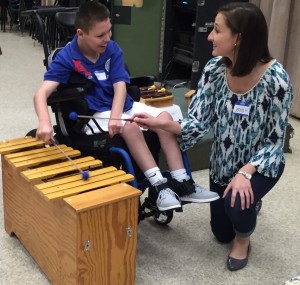A Christian missionary was teaching high school students in a rural village in east Africa. As the Christmas season approached, the teacher explained the tradition of Christians exchanging gifts with one another on Christmas as an expression of our gratitude for the love that God had shown humanity in the gift of Jesus Christ. A few weeks later, on Christmas morning, there was a knock on the teacher’s door. Standing there was one of his students, holding a seashell of lustrous beauty. The missionary knew that sea shells of such quality could only be found in a cove along the coast, many miles to the north, that could only be reached on foot. Immediately moved by the student’s generosity, the missionary said, “Thank you so much. It is extraordinary that you would have gone so far just to get me this gift.” His eyes brightening, the student replied, “Sir, the long walk is part of the gift!”
The student understood the full significance of Christmas better than did his teacher. Christmas marks the journey of God’s long walk to humanity in the gift of God’s Son, our Savior Jesus Christ. God takes on human flesh as the baby in the manger, the One who is none other than the person who calms the storms, who heals our brokenness, who dies for our Sin and is raised on the third day. We discover joy, love, and especially hope in God’s long walk that is part of the gift we receive in Christ.
Hope abounds in our life together at Baylor because of the gift of God in Christ that nurtures, sustains, and renews us.
We are nurtured in the hope of Christmas because we know where the journey is headed. The student knew where to find the seashell of lustrous beauty. We know the long walk with God is worth it, because our focus is on Christ and his Kingdom. We can keep our heads raised high because we know where we are going.
We are sustained in the hope of Christmas because God’s grace gives us the strength we need to persevere on that long walk. During those times of struggle and exhaustion and sadness, such as we have been experiencing at Baylor over the past year, we are sustained by the ongoing awareness that the long walk is part of the gift.
We are renewed in the hope of Christmas because we are accompanied by friends and faithful practices that encourage us. In our study, in our worship and prayer, in our life together, we find the sources and resources that renew us and strengthen us for the journey. The long walk is made easier by the gifts of people and practices around us.
During the Christmas season, I hope all of us in the Baylor family will rededicate ourselves to our mission, remembering the hope to which we have been called and bearing witness to the God whose long walk to humanity we celebrate.
In this final Hope Abounds post of 2016, Executive Vice President and Provost, L. Gregory Jones, offers a reflection on the “The Hope of Christmas.” Our regular posts and emails will resume in January. Have a merry and blessed Christmas!


